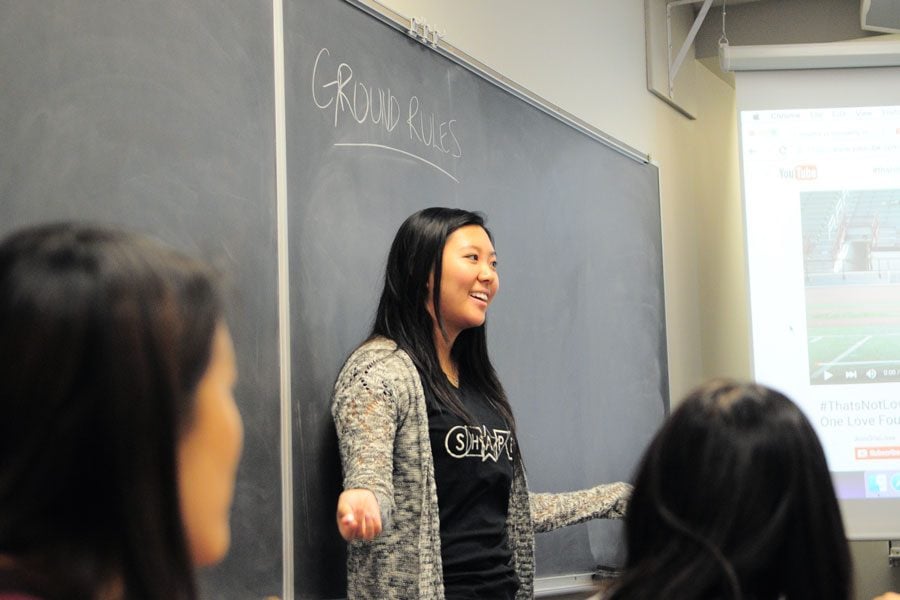SHAPE limits use of gendered pronouns during programming
Daily file photo by Lauren Duquette
Northwestern students give input on what constitutes a healthy relationship during an event in October 2015. This year, Sexual Health and Assault Peer Educators is taking new steps to make sure that students participating in its programs feel comfortable.
October 19, 2016
This year, Sexual Health and Assault Peer Educators is taking new steps to ensure participants feel comfortable: For one, the group won’t use gendered pronouns to assume someone’s gender identity when responding to questions or comments during programming.
“We really want to pay attention to the narratives that we are using and the language that we are using,” said Communication senior Amanda Odasz, outreach chair of SHAPE. “There really are very small things that you can do to quickly tweak a presentation to make it more inclusive.”
SHAPE moderates discussions, holds events and hosts presentations surrounding sexuality and sexual health. Presentations focus on a range of topics, including sexual assault, safe sex and fostering healthy relationships.
Odasz said many Northwestern students do not identify with the gender binary, which classifies people as a man or a woman. To reflect that diversity, SHAPE programs have been modified to consider a variety of example scenarios with gender-neutral names and pronouns when possible, she said.
SHAPE doesn’t want to assume students are only engaging in limited types of relationships or sexual activities, said McCormick senior Jovana Crnomarkovic, training chair of SHAPE.
Focusing on heteronormative sex and relationships alienates those with different experiences and identities, Odasz said. Those students may disregard presentations they do not find applicable, leading some to overlook valuable information, she said.
The programs are intended to be non-judgmental and informative, Crnomarkovic said.
The topic of sex is pervasive in our culture and across college campuses, said Weinberg senior Molly Benedict, executive director of SHAPE.
“The fact of the matter is that people are having sex in college,” Benedict said. “Maybe not everyone, but it’s something that affects us all.”
In addition to presenting to sororities as they have done in the past, SHAPE members are reaching out to more residential colleges, residential halls, multicultural organizations and student groups.
SHAPE is seeking to reach more students, regardless of gender identity, sex or sexual orientation, to answer questions and spread knowledge about sexual health, Benedict said. She said the group hopes to reach students “we haven’t talked to before.”
By altering presentations to connect with wider audiences, SHAPE seeks to represent all genders and sexualities present in the NU community, Benedict said.
“We’ve changed some of the formats so they’re easier to follow along with,” she said. “Some of our programs had heteronormative and cisnormative language that we’ve tried to change to make it more inclusive.”
The content of SHAPE presentations should be useful, relevant and accessible for every student, Benedict said.
“Whatever the situation is, SHAPE wants to be a resource for every student,” she said.
Email: [email protected]
Twitter: @lend_er_man


